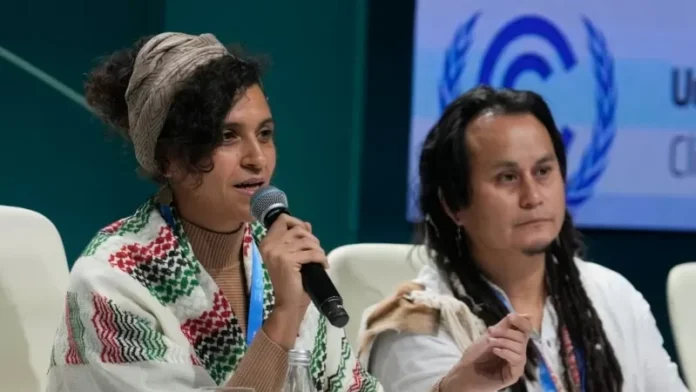Baku, Azerbaijan – The beautiful city of Baku is buzzing with energy as it prepares to host the annual U.N. climate summit. Delegates from all around the world have gathered here to discuss and negotiate on one of the most pressing issues of our time – climate change. The stakes are high as countries gear up for tough talks on finance and trade, following a year of devastating weather disasters that have emboldened developing countries in their demands for climate cash.
The summit’s top priority is to reach a deal for up to $1 trillion in annual climate finance for developing countries. This is a crucial step towards mitigating the impacts of climate change and helping these countries adapt to its effects. However, these negotiations are competing for governments’ resources and attention against other pressing issues such as economic concerns, wars in Ukraine and Gaza, and the recent re-election of Donald Trump as the president of the world’s biggest economy.
As the host of COP29, Azerbaijan has a crucial role to play in keeping countries focused on reaching a new global finance target to replace the current $100 billion pledge, which expires this year. The Caspian Sea nation, known for being home to the world’s first oil wells, is also under pressure to show progress from last year’s COP28 pledge to transition away from fossil fuels. The country’s economy is heavily reliant on oil and gas revenues, but it has taken steps to reduce its dependence on these finite resources. The government has announced that these revenues will continue to decline, with a goal of reaching 22% of its GDP by 2028.
Before the summit talks can begin, all countries must agree on an agenda by consensus. This includes an 11th-hour proposal by China to bring trade disputes into the mix. The proposal, made on behalf of the fast-developing “BASIC” group of countries including Brazil, India, and South Africa, aims to address “restrictive trade measures” such as the EU’s carbon border tariffs, which are set to go into effect in 2026. This issue has been further compounded by Trump’s campaign promise to impose tariffs on foreign goods, including a staggering 60% on Chinese goods.
China’s proposal is a clear indication of its growing power and influence in the global arena, especially in the wake of Trump’s re-election, which signals the United States’ likely disengagement from global climate cooperation. Trump has famously called climate change a hoax and has vowed to withdraw the U.S. from the Paris Agreement, the global treaty aimed at reducing planet-warming emissions. The European Union, along with current U.S. President Joe Biden’s administration, has been urging China and Gulf oil nations to join the pool of climate finance donor countries.
Li Shuo, director of China Climate Hub at the Asia Society Policy Institute, believes that if the EU wants to engage in discussions about climate finance and reducing emissions, it must also address trade disputes and tariffs. He stated, “If the EU wants to talk about climate finance with China, if it wants to talk NDCs, part of the conversation should be how to resolve our differences on trade and your tariffs.”
The urgency to take action on climate change is now more pressing than ever. With this year on track to be the hottest on record, experts have noted that extreme weather events are becoming more frequent and severe, affecting both rich and poor countries. From flooding disasters in Africa, coastal Spain, and the U.S. state of North Carolina, to droughts in South America, Mexico, and the U.S. West, the impacts of climate change are being felt worldwide. It is clear that most countries are not adequately prepared to handle these extreme weather events.
As Kaveh Guilanpour, vice president for international strategies at the nonprofit Center for Climate and Energy Solutions, rightly said, “Election results don’t alter the laws of physics.” The impacts of climate change will continue to worsen unless we collectively step up our efforts. This is a global issue that requires a global solution. The effects of climate change will be felt by an increasing number of people in all countries, including the United States, if we do not take urgent action.
In Baku, there is a sense of urgency and determination to address the issue of climate change. The city is abuzz with discussions, negotiations, and ideas to tackle this global challenge. Many are concerned that the U.S. disengagement from climate cooperation may lead other countries to backtrack on

